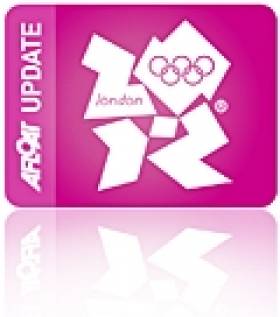Displaying items by tag: Flying Dutchman
Ken Ryan: Master Magician of Good Work By Stealth
There have been many fond and favourable responses to our recent Appreciation of the late Ken Ryan, Ireland's sailing administration polymath who was the living embodiment of the old saying that if you want anything done, and done well and in a timely manner, then ask a busy man to do it.
For it has emerged that he was also a believer in the old saying that the only really good work is done by stealth. Back in 1980, Ireland's Olympic sailing was being done on a shoestring by comparison with today's campaigning, even if today's Irish Olympic campaigns are thinly-funded when set against some of international sailing's massively-resourced mega-powers.
Yet in 1980, we were heading into a slow recession, such that by 1982 the Irish economy actually contracted by two per cent. All the signs were clearly in place in 1980, but Ken Ryan - knowing that the David Wilkins/Jamie Wilkinson effort in the expensive Flying Dutchman was on a wing and a prayer - had already personally paid for their new boat on condition that it was all kept secret at the time, and into the foreseeable future.
However, today - some forty-two years later and with Ken Ryan sadly no longer among us - the foreseeable future of 1980 is history. And this instance of his extraordinary generosity, and belief in encouraging talent, can now be revealed as yet another example of the exceptional and visionary contribution he made to our sport.
 Silver Medal squad in 1980 were (left to right) David Wilkins (FD Helm), Michael Maguire (Sailing team Manager), Kare Brevik (Sailing Team Meteorologist & Assistant Sailing team Manager) Ken Ryan (Chef d'Equipe for entire 1980 Irish Olympic Team), and Jamie Wilkinson (FD crew). Only three of those in the photo knew that Ken Ryan had personally paid for the boat.
Silver Medal squad in 1980 were (left to right) David Wilkins (FD Helm), Michael Maguire (Sailing team Manager), Kare Brevik (Sailing Team Meteorologist & Assistant Sailing team Manager) Ken Ryan (Chef d'Equipe for entire 1980 Irish Olympic Team), and Jamie Wilkinson (FD crew). Only three of those in the photo knew that Ken Ryan had personally paid for the boat.
British Sailors Want Redress Over 1980 Olympic Boycott
#OLYMPICS - "Lingering bitterness" among British sailing veterans over the boycott of the 1980 Moscow Olympics has pushed them to seek recognition for the effort they put into their campaigns, the Daily Telegraph reports.
The Royal Yachting Association (RYA) was one of four sporting bodies that joined the British government's boycott of the Olympics that year.
But according to the sailors who had earned their spots at the games, the RYA's decision was made without consultation with them or the body's membership.
“They took away our dream, the fruits of months and years of hard work and dedication which is something I will regret until my dying day,” said Soling sailor Gavin Simonds, who is leading the charge for the RYA to make amends before London 2012 and assure that no sailor will be so deprived in future.
Simonds' brother Colin was the one of the leading Soling sailors in the world in 1980, and was reportedly devastated when the RYA backed that year's boycott.
The 1980 games saw Ireland win its only Olympic medals in sailing when David Wilkins and James Wilkinson took silver in the Flying Dutchman class. The president of Irish sailing's governing body has an honourary seat on the RYA council.
The Daily Telegraph has much more on the story HERE.





























































